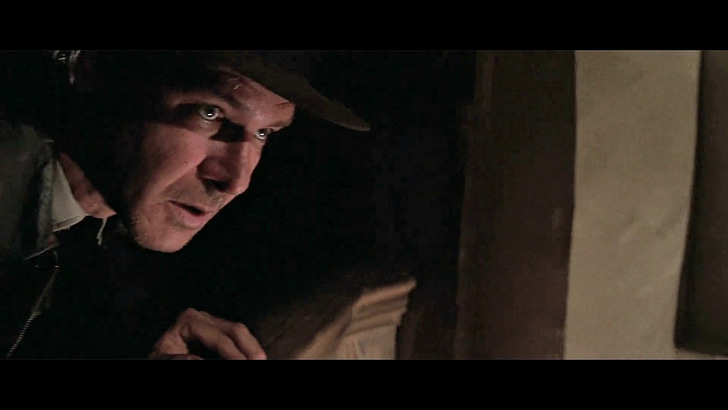I should start with something controversial, so as to draw new readers to my newsletter who cannot resist the harsh iconoclasm of a practiced firebrand.
But it can be hard to embrace controversy when there’s a genocide on, so instead I’ll direct you to an interview in which Shayla Malone, of The Missouri Review, asked some questions about my short story that the magazine published recently. I love to answer a well-asked question, and Shayla asked five of them. Thank you, Shayla, and the whole Missouri Review team!
The rest of this newsletter rambles and digresses in a self-indulgent fashion, which means it’s just like everything else I’ve ever written. But the reason I gave it the title I did is that everyone should listen to the Harry Nilsson album Knnillssonn.
I know people will call me a dreamer, when I say this. They’ll accuse me of not thinking realistically. But it’s my true and firm belief that if, on this day, everyone who read or heard this newsletter listened to the album Knnillssonn by Harry Nilsson, all wars around the whole world would stop, and none would ever start again.
I should also mention, before I go any further, that there is an audio version of this newsletter you can listen to. I got some pretty good feedback on the first one I recorded and sent out, with people telling me my voice “is not bad enough, I mean, probably not bad enough, to make people want to drive headfirst into walls and buildings, so they never have to hear anything like it again; I mean, I guess it could be worse, is what I’m saying.”
Also, I published a short story a couple years ago in a little magazine somewhere, but I never actually saw it in print and the magazine has no online presence, so as far as I can tell no one has ever read it. On the website, the issue is listed as “Coming Soon,” but it’s been that way since, I think, 2022. And I like that story, so maybe I’ll record myself reading it and release it as a “podcast episode.” Sometimes I don’t know what I’ll do until I’ve done it already.
Something I will do for sure is read the first five or so pages of the novel I’ve been revising, at the end of the audio version of this newsletter. Because people can’t get enough of the sound of my voice.
This Is Where the Real Threat Is Emanating from for You, Part One
I was reading an essay by the psychoanalyst Jamieson Webster, and came across the line, “this is where the real threat is emanating from for you, signalled by these letters.”
I don’t have any idea what she’s talking about there, so I’ll provide no context. I don’t even know I could do it if I tried. Sometimes I read things I don’t understand.
All I will say about it is that a real threat to me is emanating, and it’s signaled by some letters. I wrote the letters down, some time ago, and I have to deal with them now. Or, I don’t have to, but I am. And that’s just as bad.
What I’m trying to say is, I have been revising two novels. I spent the last year ignoring them. I wrote short stories instead, and said I was done with book-length things. There was no point.
I’m not sure there is a point now. But I am working on the two novels I wrote prior to just one year ago. I am getting back to it.
I trade off. One day I’ll work on one novel; a couple days later I’ll work on the other. In between, I do the work I have to do to stay alive.
The novel I’ve been working on today and yesterday is called We Eat the Rich. I thought it was finished already. I read it again recently and found that, 100 pages in, its momentum flagged.
Some books’ momentums can flag. They’re allowed to do that. This one’s momentum, though, cannot. Its premise is too absurd for the reader to have even the slightest opportunity to say, Wait a minute. This is ridiculous. I have to keep throwing more weird shit at them, so they don’t question anything I’ve already hit them in the face with.
It’s a good strategy! There is no way this will not work out.
To be honest, I’m uncertain about the novel as a whole, and I think it may have been a terrible mistake to write it in the first place. I’m sure I’ve explained it more than once in this newsletter already, but here we go again: it’s about four young women who roam America in a van and kill and eat rich people. They go to a house that looks nice, have a feast, burn the place down, and move on. They never get caught, because their van once belonged to a sorceress who cast a spell on it, or because they’re lucky, it’s not clear which.
There’s not much actual bloodshed in the novel. I mean, there is some. There has to be some. But I’m more interested in the way these four characters talk to one another, and the world they generate inside their van, in which the things they do make sense and everything is inside out. The two novels I’m working on, and another one that’s finished that I’m querying agents with, form an unintended trilogy, in which characters create alternate realities all their own through speech and thought, and then find that those realities must be dismantled if they are to survive or maintain their relative sanity.
I didn’t say it was a good trilogy. I don’t know if any of this stuff is good.
I think it’s good. It might be really bad.
It may turn out that all three books have their merits, but only one of them is truly viable as a thing other people might want to read. It may be I had to write two failed things if a third was to succeed.
Or all three could be dead on arrival. I have no idea. It’s really not up to me, in the end.
This is the sort of uncertainty that can and maybe sometimes should undermine creative work. I don’t know if anyone is exempt from it. No matter what direction you move in, with the things you make, you might be approaching a dead end. It’s hard to see them coming. You have to plow on and hope for the best.
The weird thing about working on We Eat the Rich is that since I started writing it, and since I tentatively finished it, thinking I was done forever, I’ve entered another season. I wasn’t all that interested in bloodshed when I started the novel, but I was willing to embark on writing a novel in which bloodshed played an undeniable role. I am much less interested in doing that now. I wouldn’t start writing this novel today.
At first, it wasn’t even supposed to be a novel. It was a short story I handwrote on the front and back of one sheet of paper. On the front of the page, I established the four main characters, and gave them names; and on the back I had them engage in a shootout with the police. They all died.
Later, I expanded it to a longer story, then found I wanted to know more about these characters, and see what else they had to say to each other, which is an annoying way of saying that I wanted to write them into more scenes. Hence, the novel.
And so I’ve been guilty, recently, of doing the thing that Richard Rodriguez talks about: going back to an old novel and revising it, when really what I’m doing is writing a new novel. But while he cautions against that, I think it’s the best thing that could happen to this book. In the first hundred pages, it managed to depict violence without ever being morbid; after that point, in the draft I’ve since rewritten, it got morbid. And so I’m revising the morbidity out of it. I’m cutting sallow words. I’m preventing sentences from turning concave and forming a pit the reader will fall into.
Then there is the bigger question, the question of why I’m even bothering with this at all, when it’s possible, if not likely, that none of it will ever be read by someone other than myself and whoever I trick into reading it as a favor, so I can find out what they think.
One of our cats woke me up fifteen minutes before my alarm went off yesterday. He kept meowing at me. No matter what I said, he would not leave me alone. This cancel culture has gone too far.
This Is Where the Real Threat Is Emanating from for You, Part Two
Sometime soon I’ll write about Criterion Channel 24/7, which is a fun thing that didn’t exist until recently. But instead, for now, I want to write about something else I saw on the Criterion Channel, which has existed for almost fifty years, but which wasn’t available for most of those years. It’s a film the director locked in a vault, or something, for decades, because the subjects of the film didn’t approve of it, and didn’t want it to be seen. But now it’s out of the vault.
It is the documentary Regrouping. I watched it a few nights ago. It caught my attention because Kathryn Bigelow’s name appeared in the list of cast members, and the description made it sound interesting.
I really don’t know much about Kathryn Bigelow. I’ve seen a bunch of her movies, though. I don’t know for sure where she appears in this movie, which is a hard one to describe. That she was depicted in it intrigued me, but it’s also not her film; it’s directed by Lizzie Borden.
It’s a documentary from 1976. It’s in black and white. As a series of title screens explain at the opening, Borden started making the film in collaboration with a group of young women artists in New York City, who had formed a kind of collective. Laura Nelson describes it better than I can, in the Los Angeles Review of Books:
Over a bewildering 80 minutes, Regrouping is a multilayered, polyphonic, and capacious study of feminist groups. Placing multiple voiceovers on top of scenes of women talking, dancing, sharing food, showering, and having sex, Borden’s film offers antagonistic, unstable, and multiple articulations of collectivity, asking: What are the purposes of (feminist) groups? What are the methods and practices of collectivity? And what happens when the group breaks down?
I feel like I have to add a disclaimer, here, and tell everyone that the reason I find this movie captivating is not that there is footage in it of women taking showers together, and other footage of two women having sex.
I am constantly worried that, because I am a straight man, I am at all times under suspicion of being a disgusting sex fiend; that others assume I am only ever interested in women because I want to sleep with them, or whatever. That’s not how it is, and I worry that this very paragraph could be used as evidence against me, as proof that all I want from the world is erotic stimulation, because there are men out there who are like that, and how do we know I’m not one of them?
In recent years, I sometimes recommended to others the Hulu TV series Harlots. It was a good show! The writing was top-notch, and Samantha Morton was in it. She’s the best. But whenever I tried to tell someone how good it was, it was clear to me that they assumed, because it’s a show about prostitutes, that I liked Harlots for the Game of Thrones reasons, that maybe the writing was good and so was the production value, but it was also loaded with hot sex that I couldn’t get enough of because I’m a fiend. In reality, there’s no hot sex at all on the show Harlots. What sex there is is freaking gross, and when it’s not gross there’s nothing salacious about it. People keep all of their clothes on, because in England at that time it was cold, and getting undressed took too long.
And what’s interesting about the scenes depicting sex in Regrouping isn’t the sex that’s happening onscreen but the way in which it clashes with the audio that’s played over it. Or maybe they don’t clash. Maybe they just disagree.
Borden films two naked women engaged in intimacy, and the sound you hear when you see it is a woman talking at some length about how she tried sleeping with another woman but couldn’t figure out how to enjoy it. It wasn’t for her, she explains. The effect is a strange one. These two very different forms of vulnerability happen simultaneously: visually, two people are undressed and touching one another; audially, someone is speaking candidly about her attempt to enjoy an intimacy she didn’t like, the very thing that’s playing out on the screen.
There is a narrative at work in Regrouping. As the title cards explain, when it starts, the director started off working with this feminist collective, but the collaboration didn’t last. The artists in the film didn’t like how Borden was depicting them, and didn’t agree with how the film was coming together. So the film is in part a depiction of how that collaboration breaks down. Borden is less and less welcome in the group, and you see that happen, more or less. She brings in another group of women artists, who are in their thirties and more established, to have conversations with her. Those conversations are patterned together with footage of the younger women who found Lizzie Borden alienating and shut her out.
The film is something like an attempt to salvage something from a great failure. Maybe that’s exactly what it is; maybe it’s not.
I kind of don’t even like that I’m writing about it. An hour into watching the film, I realized that for the last sixty minutes of my life I had been hearing people talk but had not once heard a man’s voice. I wondered if I’d ever had that experience before, when watching a movie. Surely I have, but I couldn’t tell you when.
I hate that this is what all my enthusiasm for Regrouping is leading up to, but it was when I was watching it that I figured out what to do with We Eat the Rich. Until recently, I was letting the manuscript sit there, deeply imperfect and utterly alienating. I knew it had problems. I didn’t know how to fix them. I thought maybe I never would know. Somehow, watching Regrouping showed me a way forward I would not have considered otherwise.
The film is constantly showing you two things at once. What’s on the screen does not match the audio. You’ll watch a solid minute of a woman talking to someone else, and you can’t hear what she says; instead a different woman is talking, and it’s not clear at first how the two things are related. Maybe it’s never clear how the two things are related.
What I ended up doing with my novel does not resemble that, really. But I guess when I watched this movie I was reminded that sometimes the only way to get something right is to chop it into pieces. And so I chopped a big chunk of the novel into pieces.
Also—and this is maybe more significant than anything else I have to say about it—after watching Regrouping, I feel like a real son of a bitch just for writing a novel that has four women as its primary characters. In a way, they’re really one character; they function as a unit.
I have been thinking a lot about about characters who come in groups of four. Some offhand examples include the Teenage Mutant Ninja Turtles, the Three Musketeers (there are, in fact, four of them), and the women from Sex and the City.
It seems to me there’s a pattern these groupings follow. Each of the four characters fits an established mold. There’s the leader (Leonardo, Athos, Carrie); there’s the one with great appetites (Michelangelo, Porthos, Samantha); there’s the brainy or at least clear-sighted one (Donatello, D’Artagnan, Miranda); and there’s a fourth one, who in many cases is brooding and mysterious, like Aramis in the Three Musketeers and Raphael in TMNT. The problem here is that Sex and the City doesn’t have a brooding and mysterious character. Instead it has Charlotte.
What if, instead of Charlotte, Sex and the City had a character who was mysterious? Someone whose moods could not be predicted, and who maybe had a bad temper? Wouldn’t that have been more interesting than Charlotte? They could have cast Angela Bassett in the role, or Parker Posey—or they could have kept the actor they got, and made the character different. They could have written her not as a prude but as someone whose appearances are in some way deceiving, someone the others can never quite figure out.
Anyway. Whatever. I’ve been thinking about women—and not the way that people who heard me say that would probably think I’ve been thinking about women.
I’ve been thinking about how I’ve written fictional women characters without being a woman, and how when I give that more than a moment’s thought it seems not quite right. I’m underqualified. I mean, sure, I have spent time with women. I am helping to raise two girls who are becoming women. I am married to a woman. I have spent a lot of time in seminar rooms in classes led and mostly populated by women. And I read books by women as often as I read them by men—I started this with a quote from noted woman Jamieson Webster—but still I feel like I’m a two-dimensional being who dwells in their three-dimensional world. I don’t know that I’ll ever not feel that way.
I don’t know that I’ll never not worry that I’m using the female gender as a rhetorical device. And because of that I’ll probably always be suspicious of myself. It’s not enough to make me want to burn We Eat the Rich, and decide it is a terrible mistake, one in which I trivialize the life experiences of people somewhat unlike myself. I don’t think it’s offensive in quite that way. I could be wrong.
We Eat the Rich is not the novel I would start writing now, if I started a new novel. But I want to do justice to the person I was when I started writing it, who knew the idea he’d had was absurd but wanted to see what he could do with it anyway, and followed it down a path that led him to generate at least 100,000 words. The book is shorter than that now; I’ve cut it to 70,000 words. I have had to be ruthless. I am both the author of this novel and its harshest critic. I’ve worked on it long enough to play both roles.
I think that in the audio version I’ll read the first five pages or so of the book.
Why will I do that? I have no idea, other than that I have it right here, and no one has the guts or good sense to stop me.











